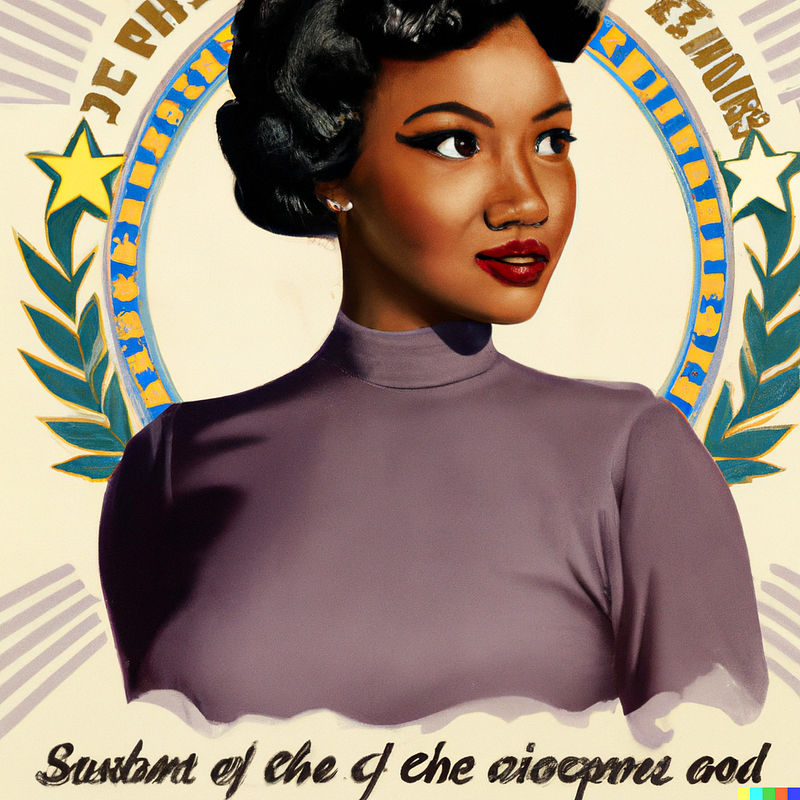Transgender People of the World, Unite!
Because gender is not a commodity, either


Recently, I came across an article with the word “truscum” in the title. I won’t link to the article; just reading that word irritates me. The weakest form of criticism is to label your opponent and consider the argument finished.
The article I read was intended as a whimsical parody of a conversation between a transmedicalist (who believes transgender is purely a medical issue) and the author, who purports transgender is purely a matter of personal choice. The tone of obvious superiority the author took to appear to skewer the transmedicalist left me with a sense neither argument is defensible.
I wanted to respond to that article, but could not figure out how to get into the topic — I couldn’t decide what really made me dislike it. Then I received a comment to my recent article on gender dysphoria, in which I argued everybody experiences gender dysphoria as a typical part of growing up in a society.
In considering the comment, I realized what bothers me about the transgender community calling each other names, as well as what I must respond to the person who commented. My work as a writer and transgender activist began as an attempt to explain why I am who I am in a way that resonates with my scientific background.
My purpose shifted this year: I write to explain why I am just like everybody else.
On the origin of gender
The comment I received on my original article argues gender dysphoria “is not born of outside perceptions but of this wholly intrinsic, internal misalignment that results from having a female brain in a male body (with the associated social expectations) or vice versa.” This is an opinion commonly held among transmedicalists, and relies on Functional Magnetic Resonance Imaging (fMRI) data to demonstrate similarities among brain activity in cisgender and transgender people (say, cisgender women and transgender women).
I feel strongly enough about the inconclusive nature of fMRI data to have written an article months ago, and I will not revisit my arguments here. I highlighted the comment because I want to contrast it with the author who used the label “truscum.”
That author chuckled indulgently at a transmedicalist Straw Man before making the claim gender dysphoria is the result of society not respecting transgender personal expression. If society would only allow anybody to identify as anything we choose and adjust the political environment as necessary, the world would be a much happier place.
Both arguments discuss not gender dysphoria, but the cause of gender dysphoria. Gender originates either in biology (that is, genetics, biochemistry, hormonal balance), or gender originates in the mind (that is, plucked wholesale out of the air). In both cases, however, that gender exists at the personal level is unassailable.
Venugenia — Goddess of Gender
Discussing the origin of gender, however, has not paid dividends for the transgender community. Across decades, well-meaning scientific organizations (and some not-very-well-meaning) have attempted to explain or disprove the transgender experience through many pathways — genetics, biochemistry, brain structure, the existence of a soul, social imprinting, and others.
We conclude the origin of gender is…complicated.
Unfortunately, anti-LGBTQ rhetoric is simple — genetics causes sex, which causes genitalia, which causes gender, which causes sexuality. It is compelling in its simplicity, even as it is inaccurate scientifically.
But as we in the transgender community admit that gender is complicated, we weaken our standing politically. At present, the science is inconclusive, and policy based on bad science (the anti-LGBTQ rhetoric) cannot be countered with equally questionable science.
We don’t know if some scientific-sounding jargon above causes gender, or if Venugenia — the Goddess of Gender I just made up — bestows it upon us. In the absence of a 100% accurate test for gender and sexuality, anti-LGBTQ rhetoric will win because of its simplicity.
Even as a scientist, I am convinced claiming Venugenia bestows gender upon us is less dangerous than placing faith in poor science. At least attributing gender to a goddess states explicitly we understand gender is a mystery. Iffy data delivered by geeks in white lab coats — regardless of its conclusion — appears as if it could be right.
The sex to gender to sexuality argument is already compelling. When we in the transgender community tear each other up with mean labels over what inconclusive evidence exists for why we are, the fight for our ability to define who we are is being lost — we appear to have no compelling argument against anti-LGBTQ rhetoric.
Who do you trust?
The arguments above, anti-LGBTQ or otherwise, focus on a possible origin of gender identity — that is, the cause. My work now focuses on the symptoms of gender identity — the effect. As each of us establishes a gender identity, we use what we know about who we are (even if subconsciously) and experience the social pressure and level of approval of being that person.
I focus on the result of gender because the appropriate response to a faulty argument is to reject it outright. If science has not established the cause of gender, we must instead investigate its effects and accept them. There is no doubt people who experience consistent gender dysphoria become more functional with an opportunity to transition.
I have. My friends have. This is empirical data that cannot be ignored — we identified our gender, we acted upon our identification, and we all feel a whole lot better.
Recognizing my identification of gender, however, requires trust. We must trust each human is competent to define the experience of identity. We must trust that when identity is established, nobody is able to gainsay it.
Do I ask too much?
We trust people to identify emotions accurately — they are angry, sad, elated, excited. We trust people to worship whatever god or goddess they choose. We trust people to identify political affiliation and vote to change the course of a nation’s history.
Is gender different? No — society depends on being able to trust each person is capable of determining personal identity far better than anybody else.
Just as each human experiences emotions, religion, and political affiliation, each of us has originated a gender. As a result, gender dysphoria is a typical experience of determining the boundaries of the society in which we live.
The origin of gender is irrelevant. The result of gender is.
Accepting the rainbow as normal
I work to demystify the relationship between sex and gender. As such, I describe the transgender experience in words that make the symptoms and emotions universal — because they are. I challenge the transgender community to give up a search for validation that comes from outside. You are already capable of discovering who you are.
I understand how wonderful it would feel to be able to point at scientific research and know my government could no longer restrict my rights because of my presentation. But our Brothers and Sisters are being killed as a result of our infighting — our inability to present a common front.
We must unite and focus on emphasizing the similarities among humans as opposed to the differences. By showing the transgender experience is no different from any other human experience, we will stop being othered. We will become integrated.
At the price of giving up our sense of being special, we gain a world in which we may be seen as completely normal.
Thanks to Morgane Gouyon-Rety for her comments.




